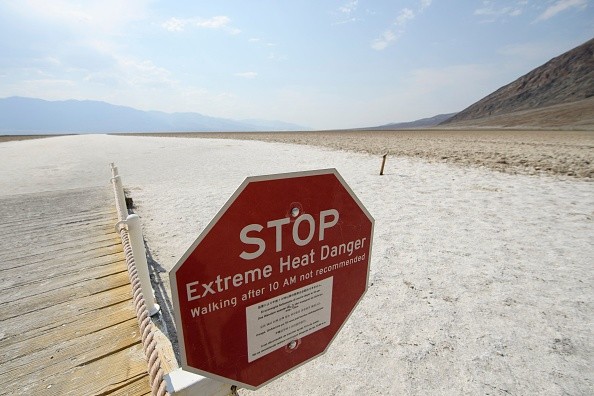Recent climatic extremes have shattered long-held records by a significant margin. Due to a tendency to adapt to the greatest intensities, and no greater, encountered throughout a lifetime, such extremes that are unusual in the observational era can have significant consequences.

Heat Wave Frequency
According to research, fatal week-long heat waves might be up to seven times more frequent by 2050 if greenhouse gas emissions are permitted to continue at current levels.
Experts led by the Swiss Federal Institute of Technology calculated the frequency of severe temperature events under various future emission scenarios.
The study's findings were published in the journal Nature Climate Change in their entirety.
Record Breaking Heat Waves

They discovered that record-breaking heat waves are linked to the rate at which the climate heats up rather than the intensity of global warming.
Climate scientist Erich Fischer of the Swiss Federal Institute of Technology (ETH Zürich) and his colleagues conducted the research.
Related Article : NASA Reports Earth Has Been Trapping "Unprecedented" Amount of Heat in Energy Imbalance
Climate and Weather Forecasts

The researchers said in their article, "Models forecast not just more severe extremes, but also occurrences that break existing records by considerably greater margins."
'These record-breaking events, which would be practically unthinkable without warming, are expected to happen in the coming decades.'
The researchers used climate models to see how likely week-long, record-breaking heat waves might be under various future emissions scenarios.
In a high-emissions scenario, the researchers discovered that record-breaking, week-long heat extremes will be 2-7 times more probable between now and 2050 than they have been in the previous three decades.
In the period 2051-2080, the chance of severe heat waves will grow much more, to 3-21 times current levels, with occurrences likely occurring every 6-37 years in the northern midlatitudes.
Simulation Results
The researchers' simulations also showed that record-breaking heat spells will occur in spurts during periods of rapid global warming but will be less likely during 'calm' periods with little or no warning.
'Their likelihood of occurrence is pathway-dependent and depends on warming rate rather than global warming level,' the researchers stated.
They stated that if human-induced warming could be successfully stabilized by substantial mitigation, heat waves would still be more frequent and intense than in the past, but record-breaking extremes would be less likely.
Current Climate Conditions

'In the last month, the globe has seen temperature records broken in North America and disastrous floods in Europe and China,' said Vikki Thompson, a climatologist from the University of Bristol. The latter was not involved in the research.
'It is undeniable that climate change is having an impact on the globe. Understanding what could happen in the future is critical for us to be able to adjust.
'The good news is that we can avoid the worst-case scenario depicted in this study - we are currently on track to be below it, and further carbon reductions would further lower the likelihood of record extremes.'
'Studies like these demonstrate the need for explicit global emissions targets, which may emerge at the UN Climate Change Conference in 2021.'
For more climate and weather updates, don't forget to follow Nature World News!
© 2026 NatureWorldNews.com All rights reserved. Do not reproduce without permission.





